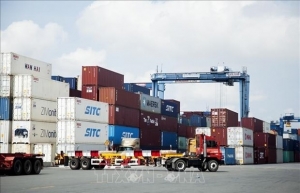Confidence reaching significant levels for medium-term economic prospects
What is your outlook for emerging Asian economies at the moment?
The outlook for Asia’s economy is promising. With the global economy expected to grow around 3 per cent and emerging Asia at around 5 per cent, two things become clear: higher growth is present in Asia, and the global economy is increasingly pivoting towards Asia. This means Asia will continue to be the centre of global growth for years and decades to come.
 |
| Dr. José Viñals, group chairman of Standard Chartered - photo sc.com |
A notable development in Asia is that it’s no longer just a China story. While China remains significant with a growth rate of 5 per cent, India is also a major player with significant growth rates around 7 per cent. Additionally, the ASEAN region is crucial.
If ASEAN were a single economy, it would be the fifth largest in the world, with substantial medium-term growth potential. This means we now have three key engines driving growth in emerging Asia instead of just one, providing more stability and opportunities. At Standard Chartered, we generate 70 per cent of our income and profits in Asia, making this outlook fantastic for us as well.
How do you see the prospects for Vietnam’s economy this year and beyond?
Even in the current complicated global context, I believe the Vietnamese economy will perform better this year. Last year, Vietnam had a growth rate of 5 per cent. This year, we expect growth in the second half to exceed 6 per cent, leading to an overall yearly rate of 6 per cent.
Vietnam can and should aim for more because it has the potential to grow faster. Relative to most other economies, a 6 per cent growth rate is quite impressive, nearly double the global rate and higher than emerging markets, which are expected to grow around 4 per cent this year. This places Vietnam among the top growth economies globally, which is something to be happy about.
However, we must not be complacent. Growth is like a plant that needs to be watered with good policies to ensure strong economic and financial fundamentals and an attractive environment for investment. This must continue amid increasing international competition.
I have significant confidence in the medium-term prospects of the Vietnamese economy, even though there are short-term uncertainties related to foreign exchange, inflation, and political volatility. These issues are common across many economies. The key is to maintain the outlook and implement the right policies to ensure Vietnam continues to grow in a sustainable and green manner, which is crucial.
What are the outcomes of your recent meetings with the government, and what is the significance of the recent credit rating enhancement of Vietnam?
We want to reconfirm our deep and longstanding commitment to Vietnam and its people. This year, we are celebrating our 120th anniversary in Vietnam. We are very proud of our long and deep engagement with Vietnam, our clients, our employees, and the community.
In our recent meetings, we aimed to continue advancing our collaboration in various areas. For example, we are honoured to be the sole ratings advisor to the Vietnamese government, a role we have held since 2012. We have been pleased to see multiple upgrades in Vietnam’s ratings over the past few years. Our objective now is to work with the Vietnamese government to achieve investment-grade status by 2030.
I think the recent credit enhancement in this country fundamental. When your credit rating goes up, you can attract more investment, both foreign direct investment and portfolio investment, at better rates. This is a double positive for the Vietnamese economy. An economy like Vietnam, which is very open and integrated into the global economy, needs international investment to continue growing and developing.
Trust is a key factor, and when rating agencies improve your rating, it signals trust, which resonates well with investors. That’s why it’s so important to elevate Vietnam to investment-grade status.
Given the current climate finance landscape, many energy projects are now unviable due to financing gaps. Standard Chartered committed to mobilising $300 million for these projects. Why have you made this commitment and what challenges do you face?
Climate finance is existential for the world because fighting climate change is existential. We have committed to mobilising over $300 billion by 2030, which translates to around $30 billion per year. To your question about the difficulty, in 2021-2023 we successfully mobilised an average of $30 billion per year. If we can do it, others can too.
What’s behind our success in mobilisation? First, the financial sector must fundamentally contribute to financing the fight against climate change, both in terms of mitigation and adaptation. We achieve this through the financial commitment I’ve mentioned, which we are delivering on. Second, we work closely with our clients, offering a suite of products and services to help them reduce their carbon footprint, along with the professional expertise they need. We provide the funding, the know-how, and work with them to move forward.
In Vietnam, Standard Chartered has led the way in coordinating support for the Classical Financial Alliance for Net-Zero. Additionally, we have signed an MoU with the Vietnamese government to support $11.5 billion for the transition towards net-zero in Vietnam.
How do you see the role of environmental, social, and governance (ESG) criteria in shaping the future of Vietnam’s economy, and how has Standard Chartered’s partnership with the government contributed to these efforts?
In a world where ESG is increasingly important for companies, you either fully embrace it, or you’ll face challenges. Vietnam has understood this well and has embraced ESG, enabling it to become a more sustainable economy and continue attracting necessary foreign direct investment.
In this context, we have partnered with the Vietnamese government on several fronts. For example, we signed an MoU with Vietnamese authorities for $8.5 billion at COP26. More recently, at COP28, we signed another $3 billion, bringing the total to $11.5 billion. We are actively executing these projects.
We are also engaged with the government beyond environmental issues, collaborating on the development of carbon credit markets and other environmental aspects of ESG. On the social side, we focus on diversity and inclusion, community support, and providing microfinance loans and loans to smaller enterprises.
 | Vietnamese economy likely to expand by 6.5 per cent in 2024: Economist The Vietnamese economy is likely to expand by 6-6.5 per cent in the base scenario, with even recovery recorded in all sectors of agriculture, industry, construction and services, Dr. Can Van Luc, a member of the National Financial-Monetary Policy Advisory Council, has predicted. |
 | Vietnamese economy proceeding as predicted: experts Vietnam's GDP in the first quarter of 2024 will grow by around 5.5 per cent as predicted, according to experts and thinktanks. |
 | Vietnamese economy fared well in Q1 despite external risks The global economy is facing several headwinds, including the slowdown in China and the Eurozone as well as the US Fed's possible delay of interest rate cuts. In this context, ASEAN may be a global safe haven for economic growth. Abel Lim, head of Wealth Management Advisory and Strategy at UOB, discussed with VIR's Thanh Van the outlook of the global economic condition and its impact on Vietnam. |
What the stars mean:
★ Poor ★ ★ Promising ★★★ Good ★★★★ Very good ★★★★★ Exceptional
Related Contents
Latest News
More News
- The next leap in Cloud AI (December 11, 2025 | 18:19)
- Vietnam’s telecom industry: the next stage of growth (December 11, 2025 | 18:18)
- Five tech predictions for 2026 and beyond: new era of AI (December 11, 2025 | 18:16)
- CONINCO announces new chairman and CEO (December 10, 2025 | 11:00)
- How AWS is powering the next-gen data era (December 09, 2025 | 13:14)
- Outlook in M&A solid for Singapore (December 08, 2025 | 10:31)
- Vietnamese firms are resetting their strategy for global markets (December 05, 2025 | 17:04)
- LPBank Securities accelerates AI and data innovation with AWS (December 05, 2025 | 09:00)
- Improving traceability capacity with Zebra Technologies (November 26, 2025 | 10:08)
- Ho Chi Minh City engages 500 CEOs in dialogue on building global megacity (November 25, 2025 | 16:00)

 Tag:
Tag:


















 Mobile Version
Mobile Version